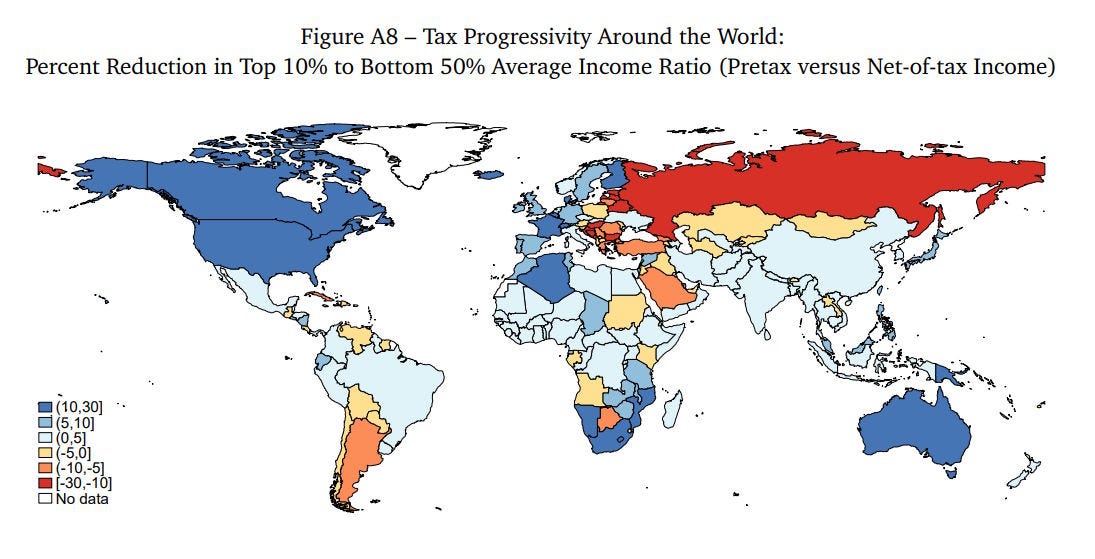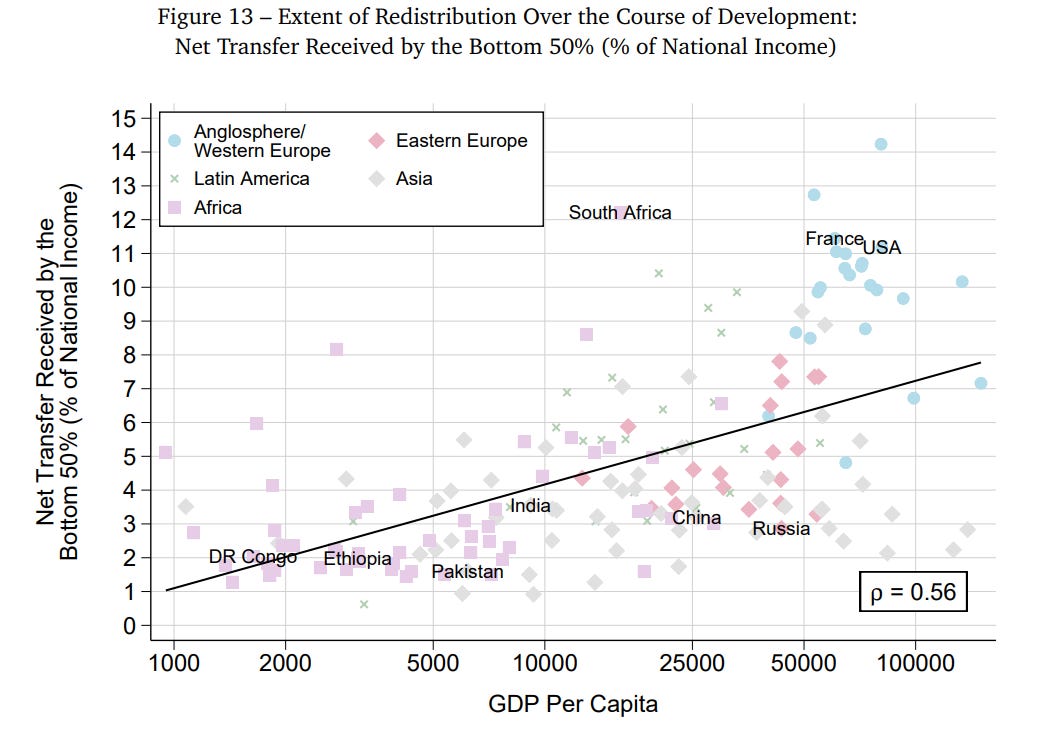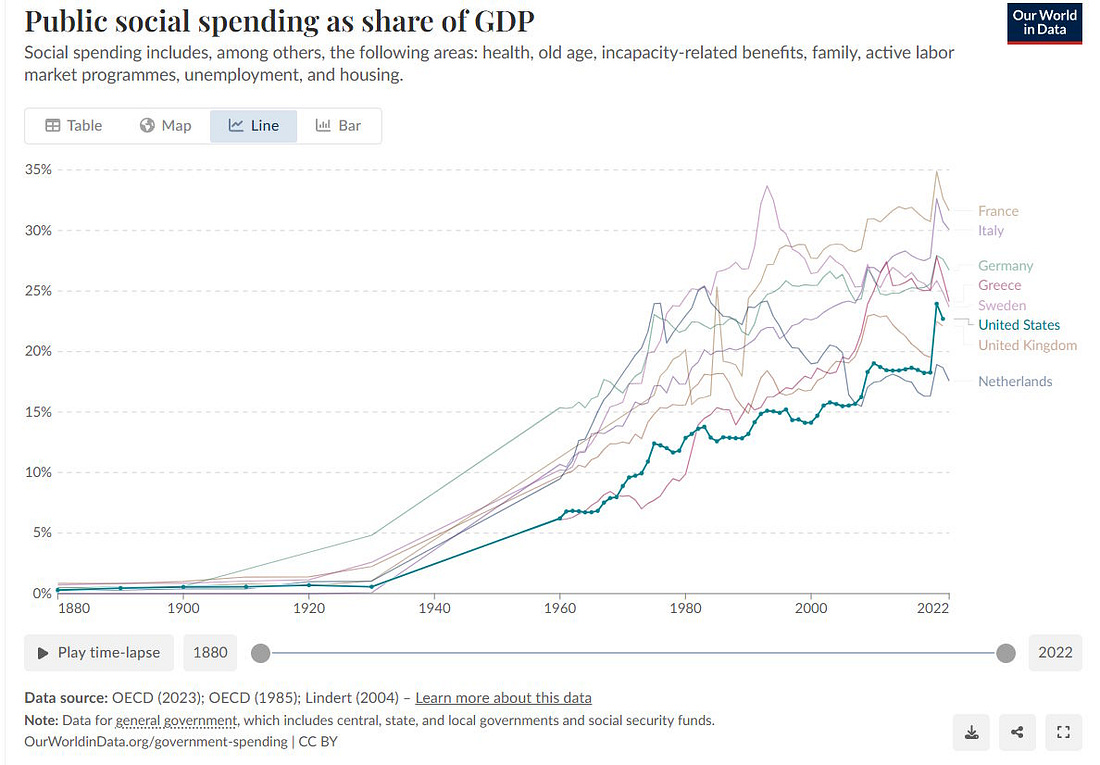|
 |
I recently attended the excellent Kilkenomics festival in Kilkenny, Ireland. If you ever get the chance to go, I recommend it. Putting comedians and economists on the same stage doesn’t sound like it makes sense, but it’s surprisingly effective; they balance each other out quite well. And Ireland is a wonderful country, of course.
But I did notice one thing at the festival that made me a little sad. Since I’m American, the festival organizers stuck me on two panels about the United States — one about the economy, the other about Trump and politics. All throughout those panels, the comedians made jokes at America’s expense — how Americans don’t have health care, how everyone is poor, how guns and violence are everywhere, and so on. The crowd ate it up. But whereas in the past this would have felt like friendly teasing, now it felt strained and a little desperate.
Europeans have good reason to be mad at the United States right now. Donald Trump has scaled back U.S. aid to Ukraine, cut military aid to the Baltic states, expressed friendship and sympathy for Russia, and in general has done lots of things to indicate that the transatlantic alliance isn’t as firm as it used to be. Trump has slapped tariffs on Europe for no good reason, and has threatened much worse. And Trump’s vice president and other MAGA figures have demonstrated an unhealthy obsession with European immigration.
After all of that, it’s natural for Europeans to want to fire back. And compared to what Trump is doing, jokes about American health care and guns are pretty weak tea.
But at the same time, this catechism of America’s supposed problems often feels like a type of cope — a way that Europeans can avoid confronting their region’s own challenges by telling themselves that “Well, America is worse!”. In fact, I often encounter this same list of criticisms on Twitter, and in casual conversation with Europeans. It includes the following claims:
Americans don’t have health care
America is a poverty-ridden, deeply unequal country with no social safety net
American politics is dominated by rich plutocrats
Americans are uneducated
America is full of guns and violence
One problem with this litany is that most of it isn’t true; some of these problems were always exaggerated, and many of them have been effectively addressed since the 1990s. But a bigger problem is that these criticisms are deeply pointless. Even if all of these things were true, it wouldn’t reduce Europe’s need to address its own deep-seated set of problems.
America and Europe are actually very similar
On Twitter or other social media, commentary about national strengths and weaknesses almost always takes the form of head-to-head comparisons. The question isn’t “How can America and Europe solve their problems?”, it’s “Which is better, America or Europe?”. This rapidly becomes a zero-sum game, with each country’s partisans trying to win bragging rights by proving that the other is doing worse.
If you were starting from scratch and picking a system to emulate, this kind of head-to-head comparison might make sense. For example, in the Cold War, lots of newly decolonized countries had to pick which system to emulate, American-style capitalism or USSR-style communism.
But those days are over. First of all, almost every country on Earth already has its basic legal and institutional arrangements in place. But more fundamentally, there’s just not that much difference between the European and American systems. Both are basically capitalist economies, with fairly high levels of taxation, robust social safety nets, and fairly efficient public services.
For example, a lot of people think America doesn’t do a lot of social spending. That’s wrong. The U.S. is similar on this scale to the Netherlands or the UK:
America’s fiscal system is also highly redistributive. Fisher-Post and Gethin (2025) estimated tax progressivity — the amount that the government’s tax and transfer system redistributes income — and they found that the U.S. is about as progressive as Europe:
 |
 |
The U.S. also has a reputation for being a lot friendlier to business and capitalism than Europe. But measures of “economic freedom” tend to put the U.S. at about the same level as North European countries like Germany or Sweden. Here are some numbers from the World Bank in 2019:
